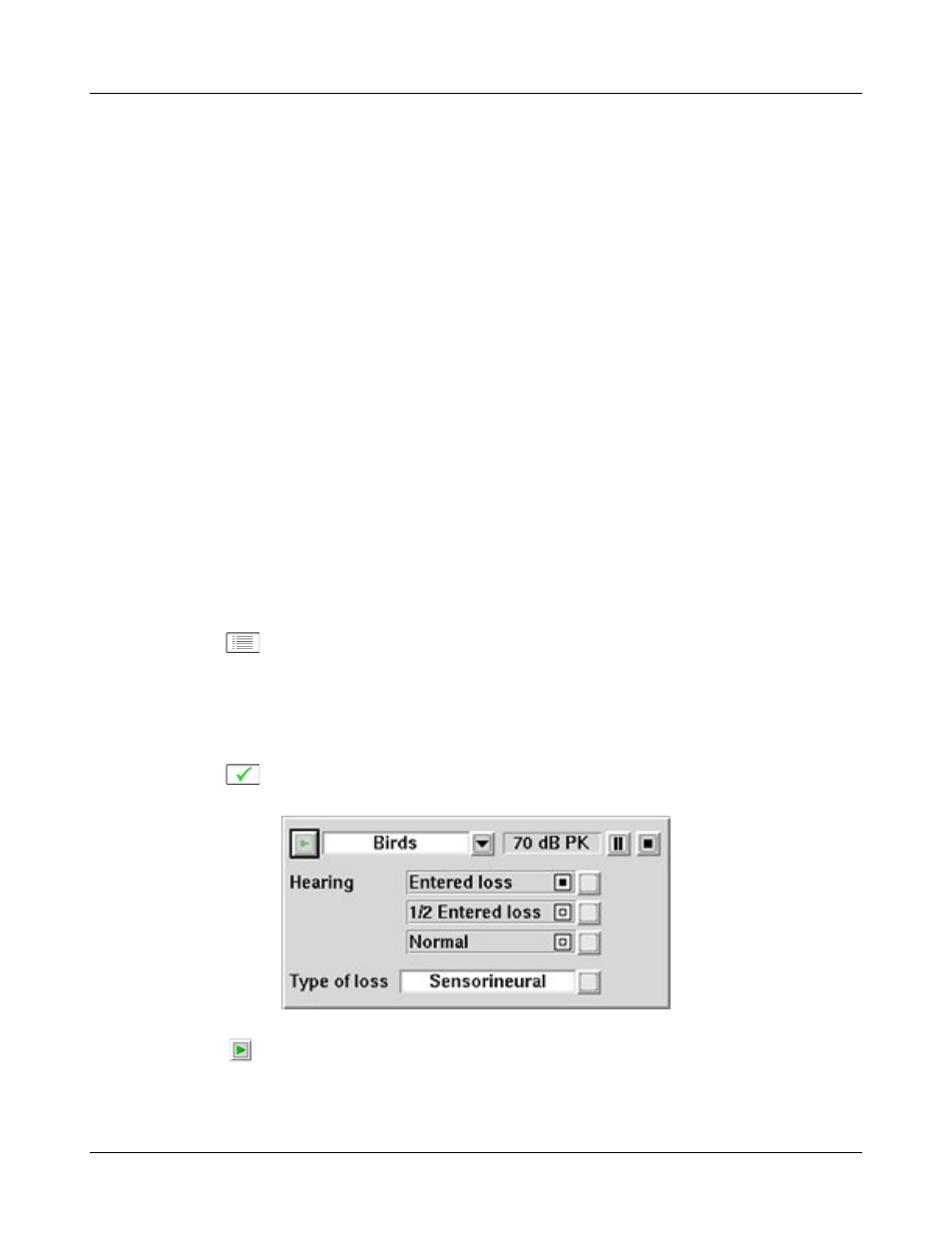11 sensory loss simulator, Sensory loss simulator description, Sensory loss simulator operation – Audioscan Axiom User Manual
Page 54

Axiom
®
User's Guide Version 1.8
May 2015
11 Sensory loss simulator
Sensory loss simulator description
A pure conductive loss attenuates loud and soft sounds equally, and is easily simulated by just turning down the
volume or inserting an earplug. Losses of a sensory nature are more complex and more difficult to simulate.
The most common sensory loss is caused by outer hair cell damage and results in loss of audibility for soft
sounds but near-normal loudness for loud sounds. Inner hair cell damage elevates threshold and reduces
loudness for both soft and loud sounds, possibly somewhat more for soft sounds.
This sensory loss simulator (SLS) is intended to allow normal-hearing listeners to hear sounds as if they had the
elevated threshold and altered loudness perception caused by outer and inner hair cell damage. It is based on the
cochlear hearing loss model described in Moore & Glasberg (2004).
In this simulation, losses less than 58 dB SPL are considered to be due entirely to outer hair cell damage. Any
loss greater than this is considered inner hair cell loss.
This SLS does not simulate broadening of the auditory filters or other distortions that may accompany cochlear
hearing loss.
To properly experience the simulation, listeners should be within 1m of the sound-field speaker and in a quiet
room.
Sensory loss simulator operation
Listeners should be within 1m of the sound-field speaker and in a quiet room.
1. Click on
and select [Speechmap] in either the [Test box] menu or the [On-ear] menu.
2. If an audiogram has previously been entered in Speechmap or Insertion gain, go to step 5. Otherwise, click
on the[Audiometry] button.
3. Enter HL threshold values using the mouse. Left click the mouse on the audiogram form to enter a point.
Click again to delete the point.
4. Click on
to return to the [Speechmap] screen when all points have been entered.
5. Click on the [Loss simulator] button.
6. Click on
. Sound, processed to simulate the entered hearing loss, will be presented via the sound-field
speaker.
7. Click on list button next to the play button for a list of sounds to play and click on one of them.
54